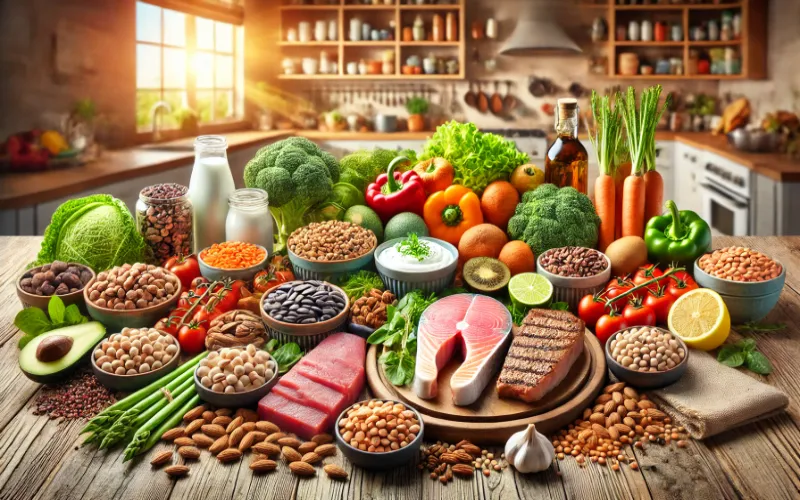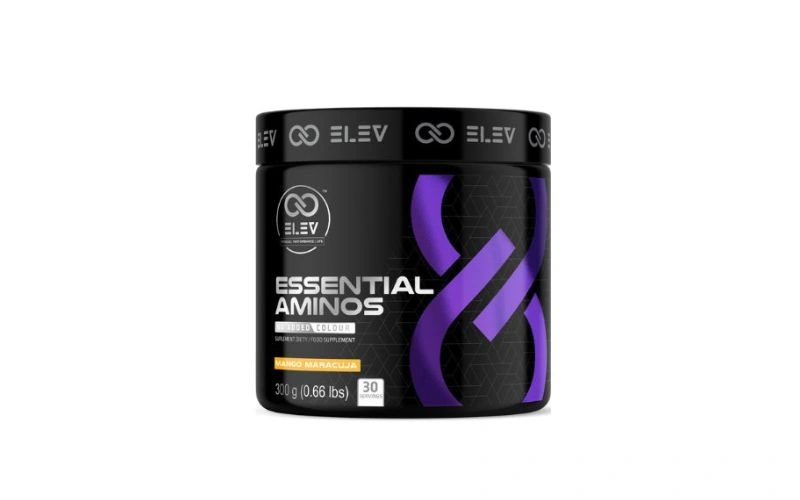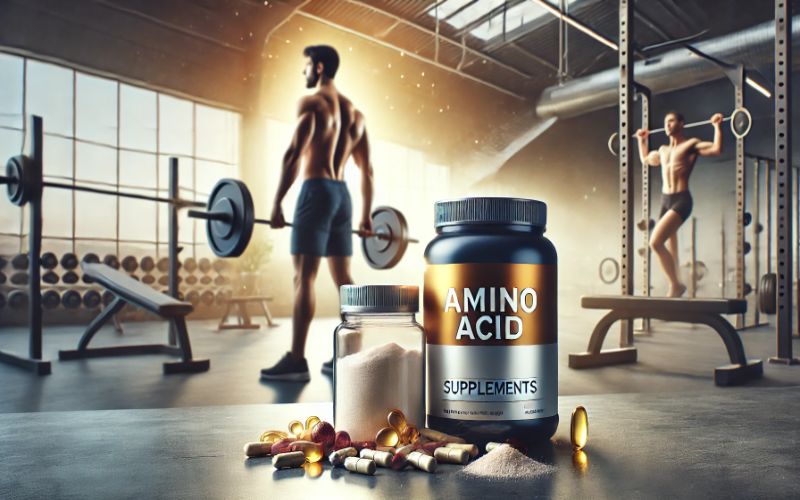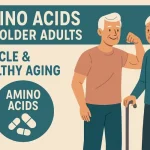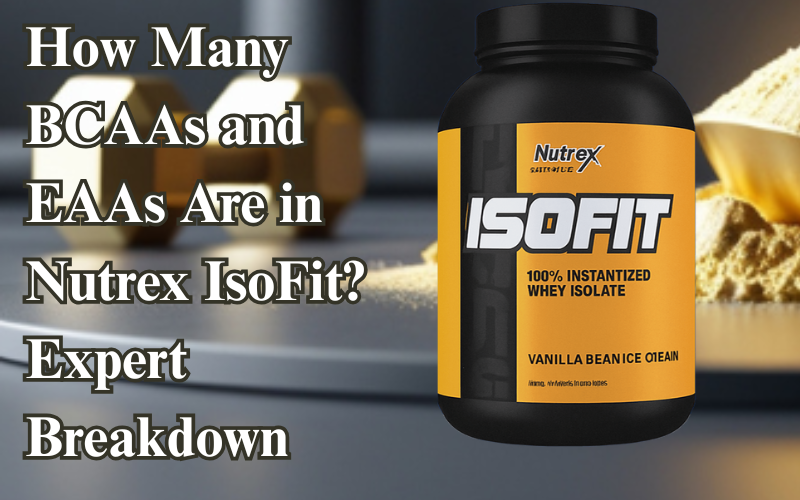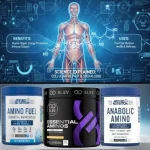When it comes to health and wellness, few nutrients play a more vital role than essential amino acids. These organic compounds are the building blocks of proteins, the very essence of life.
While the term “amino acids” might sound scientific and abstract, their role in daily health is anything but. From supporting muscle repair to boosting cognitive function, essential amino acids are a non-negotiable part of a balanced diet.
Table of Contents
What Are Essential Amino Acids and Why Are They Vital?
Amino acids are the molecules that combine to form proteins, but not all amino acids are created equal. There are 20 amino acids in total, and nine of them are classified as “essential.” This means your body cannot synthesize them, so they must be obtained through food. These nine essential amino acids include:
Each of these amino acids has a unique function. For instance, leucine plays a significant role in muscle repair, while tryptophan is crucial for producing serotonin, the “feel-good” neurotransmitter. Without a steady intake of these amino acids, the body’s ability to grow, repair, and maintain essential bodily functions is significantly compromised.
The Role of Essential Amino Acids in the Body
Essential amino acids are far more than just “protein components.” They serve a variety of crucial roles in the body, such as:
- Muscle Repair and Growth: Essential for recovery after exercise, especially leucine, isoleucine, and valine, which are branched-chain amino acids (BCAAs).
- Muscle Repair and Growth: Essential for recovery after exercise, especially leucine, isoleucine, and valine, which are branched-chain amino acids (BCAAs).
- Hormone and Neurotransmitter Production: Tryptophan is required for serotonin production, while phenylalanine is a precursor for dopamine.
- Enzyme Production: Enzymes regulate essential biochemical reactions, many of which rely on amino acids.
- Immune System Support: Histidine and threonine support immune function, helping your body fight off pathogens.
Animal-Based Foods Packed with Essential Amino Acids
Animal-based foods are some of the most efficient sources of essential amino acids. This is because they are “complete proteins,” meaning they contain all nine essential amino acids. Here are some of the richest animal-based sources:
- Eggs: A gold standard in protein quality, eggs contain all nine essential amino acids in ideal ratios.
- Lean Meats (Chicken, Turkey, Beef, Pork): These proteins are especially high in leucine, a key amino acid for muscle growth.
- Fish (Salmon, Tuna, Cod): Packed with amino acids and omega-3 fatty acids, fish offer dual benefits for heart and muscle health.
- Dairy (Milk, Cheese, Yogurt): Dairy products deliver essential amino acids plus calcium and probiotics, making them a triple threat for health.
These animal-based foods provide complete proteins, which are more bioavailable than plant-based proteins, meaning the body absorbs them more efficiently.
Plant-Based Powerhouses of Essential Amino Acids
For those following plant-based or vegan diets, there’s no shortage of foods rich in essential amino acids. While not all plant-based proteins are “complete,” they can be combined to provide all nine amino acids. Some of the best options include:
- Quinoa: One of the few plant-based complete proteins, offering all nine essential amino acids.
- Soy Products (Tofu, Tempeh, Edamame): Soy is a complete protein that is high in isoleucine and leucine, two key amino acids for muscle growth.
- Chia Seeds and Flaxseeds: Though not complete on their own, they are rich in essential amino acids when combined with other plant-based proteins.
- Legumes (Lentils, Chickpeas, Black Beans): While not complete on their own, pairing them with grains creates a complete protein.
By eating a variety of these plant-based foods, you can easily obtain all the essential amino acids you need.
Surprising Sources of Essential Amino Acids You May Not Know
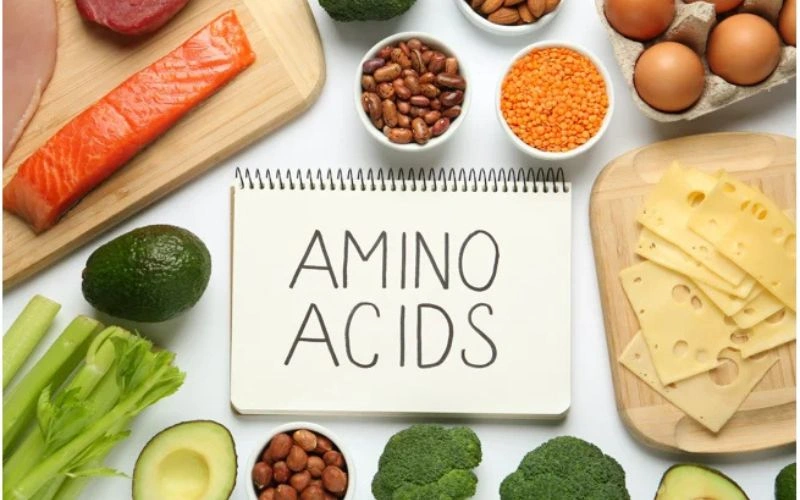
When people think of protein-rich foods, they usually think of meat, eggs, and beans. However, several lesser-known foods are rich in essential amino acids, including:
- Spirulina: This blue-green algae is a complete protein and contains all essential amino acids.
- Buckwheat: Despite its name, buckwheat is gluten-free and delivers a full amino acid profile.
- Nutritional Yeast: Popular in vegan diets, it offers an impressive range of essential amino acids.
- Pumpkin Seeds: Rich in tryptophan, they help support better sleep and relaxation.
Incorporating these lesser-known sources adds variety and nutrient density to your diet.
Balanced Diet Tips for Meeting Your Essential Amino Acid Needs Daily
While understanding essential amino acids is important, applying that knowledge in daily life is what truly makes a difference. Based on real-world experience, here are practical tips to help you meet your amino acid needs easily and consistently:
- Start Your Day With a Protein-Rich Breakfast
Incorporate eggs, Greek yogurt, or a plant-based protein smoothie into your breakfast. Skipping breakfast often means missing a key opportunity to balance your amino acid intake. - Smart Pairings for Plant-Based Diets
If you’re eating plant-based, think in pairs: beans and rice, peanut butter and whole-grain bread, hummus and pita. These combinations naturally complete your amino acid profile without needing special supplements. - Pre-Plan High-Protein Snacks
Real life gets busy. Keep quick, high-protein snacks like boiled eggs, roasted chickpeas, trail mix with pumpkin seeds, or a protein bar in your bag. This ensures you stay on track even on hectic days. - Rotate Your Protein Sources
Eating the same protein daily can cause nutrient gaps. Rotate between chicken, fish, tofu, quinoa, and legumes to give your body a diverse range of amino acids. - Listen to Your Body
If you often feel fatigued, sore after workouts, or experience slow recovery, it might be a sign you’re missing key amino acids. Tracking your diet for a few days can reveal any gaps. - Common Mistakes to Avoid
- Relying only on supplements instead of whole foods.
- Ignoring meal timing — try to have protein spaced across meals, not just loaded into dinner.
- Skipping variety — diversity in food equals diversity in nutrients.
Pro Tip:
If you’re struggling with muscle recovery or energy despite eating “enough protein,” pay closer attention to leucine-rich foods like eggs, chicken breast, or soy products, which specifically trigger muscle growth.
The Link Between Amino Acids and Muscle Growth, Recovery, and Energy
Essential amino acids, especially the BCAAs (leucine, isoleucine, and valine), play a critical role in muscle growth, repair, and energy production. Here’s why:
- Leucine: Acts as a “switch” to trigger muscle protein synthesis.
- Isoleucine: Increases energy production during exercise.
- Valine: Helps reduce muscle fatigue and supports endurance.
These amino acids are vital for athletes, fitness enthusiasts, and anyone with an active lifestyle.
Myths and Misconceptions About Amino Acids in Foods
There’s a lot of confusion about amino acids, especially regarding plant-based proteins. Here are some key myths debunked:
- Myth 1: Plant proteins are “incomplete.” While some plant proteins lack one or two amino acids, pairing them (like rice and beans) solves this problem.
- Myth 2: More protein equals better results. Excess protein won’t boost muscle growth and can stress the kidneys.
- Myth 3: Supplements are always necessary. A balanced diet can provide all the essential amino acids you need.
Clearing up these misconceptions empowers people to make informed dietary choices.
Conclusion:
Essential amino acids are not optional — they’re vital for your health, fitness, and well-being. From supporting muscle growth to enhancing cognitive function, these nine amino acids influence every aspect of your body.
By incorporating a variety of animal-based, plant-based, and lesser-known sources, you can meet your daily amino acid needs naturally. With a balanced, thoughtful approach, you’ll unlock your body’s full potential and thrive.
Eat well, live well, and fuel your body with the essential nutrients it needs to flourish.














